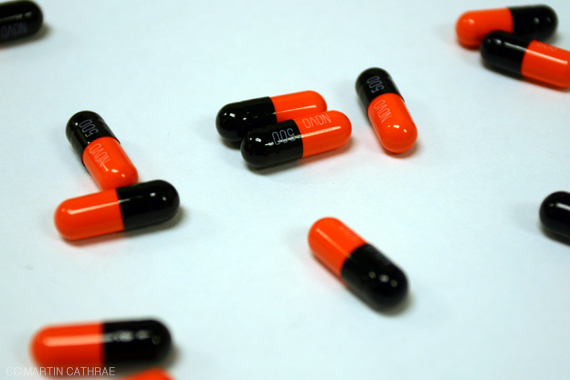
Antibiotic use in animal agriculture is increasingly under the microscope as the global emergency of antibiotic resistant diseases grows more severe. A recent study predicted that if bacteria continue to evolve at current rates, in just 35 years, 10 million people a year will die from currently treatable diseases.

Eighty percent of all antibiotics sold in the United States are fed to farm animals, to spur rapid growth in body weight or to preempt diseases that would otherwise run rampant in the unnatural intensive confinement in which most animals are raised. The practice is often referred to as "non-therapeutic" or "subtherapeutic," neither of which is a particularly comforting term. The business model of intensively confining animals on factory farms likely depends on such use. While the potential for a global superbug crisis has consumers and lawmakers growing concerned about such practices, sales of antibiotics to the animal-agriculture industry rose 16% between 2009 and 2012, with over 32 million pounds of antibiotics sold to U.S. farms in 2012 alone.
Industrial agriculture seems to be reaching a tipping point where business as usual is unsustainable. (One might therefore argue that it never was.) But somewhat encouragingly, nearly every week, another major producer or retailer makes a public commitment to phase out the routine use of antibiotics in meat and poultry production. Industry giants--Chick-fil-A, McDonalds, Perdue, Tyson--have taken steps to curb their antibiotic habits, with mega-buyer Wal-Mart the latest to hop on the bandwagon.
We applaud these companies' efforts to pay attention to a real public health crisis and answer consumer demand for products from animals raised without antibiotics. We also have to note the shortcomings and loopholes in their new policies--Wal-Mart's specifically is more bark than bite, a loud PR whimper with no teeth at all, really. We also recognize that phasing out the routine use of antibiotics without changing the terrible living conditions on factory farms will not ease the suffering of the roughly 11 billion animals slaughtered annually in this country.
As the meat producers figure out how to deal with (or avoid) these issues, consumers who care about such things are likely to be disoriented by corporate press releases and labeling claims. Is one supplier's claim of "Certified Responsible Antibiotic Use" the same as another's phasing out of a certain subset of antibiotics? Is meat that is "antibiotic-free" the same as meat "raised without antibiotics?" It's no wonder consumers are confused and demanding answers. A recent Consumer Reports survey found that 83 per cent of consumers want the government to require mandatory labeling indicating if meat was produced from an animal that was routinely given antibiotics.
A simple, uniform labeling regime for antibiotics is desperately needed. ALDF is renewing its call to the USDA to grant our petition for rulemaking that would require meat and poultry sellers to disclose on product labels whether animals were raised on antibiotics. Although our petition has been sitting on the agency's desk for over two years, advocates are not simply waiting and watching. Representative Louise Slaughter and a coalition of public interest groups joined the call for action, and a change.org petition in support of the petition has over 168,000 signatures.
One can understand the meat industry's lack of eagerness to undertake such labeling. Industrial-ag representatives often balk at any request for increased visibility of their business practices, stating that such changes will "drive prices up," "destroy jobs," or "unfairly burden the American farmer." Hogwash. They know that a phrase like "antibiotic-fed meat," no matter how many ways it's rearranged or how finely it's printed on a cellophane package, won't ever be a selling point to U.S. consumers. Asking food companies who supply millions of pounds of products every week to describe their production practices isn't activism or excessive government regulation--it's simply sane and safe.